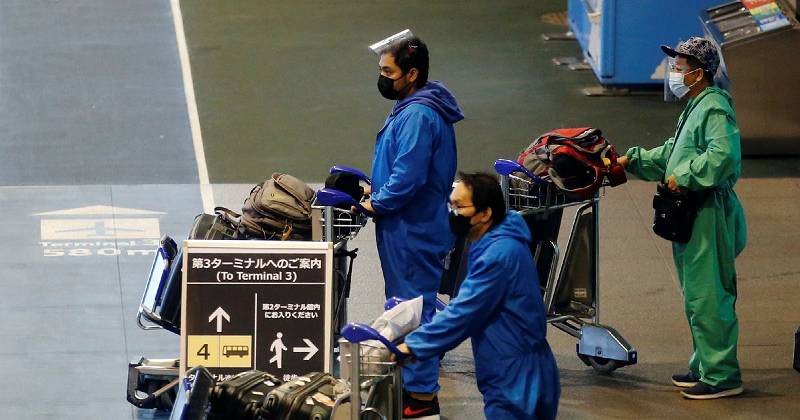
Japan will relax border controls implemented to combat the virus, Prime Minister Fumio Kishida said on Thursday, reducing measures that have been criticised by business and educators as being among the tightest applied by wealthy nations.
Around 150,000 foreign students, as well as employees badly needed by an ageing society with a declining population, have been barred from entering Japan, triggering concerns of labour shortages and harm to the country’s worldwide reputation.
Kishida stated at a news conference that officials will increase the number of individuals allowed to enter to 5,000 per day beginning in March, up from 3,500 today.
“With the exception of tourists, we will allow outsiders to enter,” he stated. The measures would be phased in over time and would be based on a variety of factors, including infection rates in other countries, according to Kishida.
He stated the statutory quarantine period will be shortened to three days in some circumstances, down from seven days today, and that in some cases there would be no need to quarantine.
The shift comes as the number of coronavirus illnesses appears to be falling, implying that Japan should begin preparing for a new phase, according to Kishida.
Nonetheless, semi-emergency procedures in place for 17 regions would be maintained until March 6, he said.
The move was praised by US Ambassador Rahm Emanuel, who said in a statement that it would assist foreign students who wished to study in Japan while also preserving public health.
Japan, which had virtually closed its borders to non-residents for two years, temporarily relaxed border controls late in 2021, only to tighten them again a few weeks later as the Omicron strain emerged overseas.
Japan presently classifies 82 countries as “high risk,” necessitating a week of quarantine, including three to six days in a hotel, for many. Quarantine was required for two weeks until mid-January.
Kishida and his government have praised tough border controls for buying Japan time as Omicron surged around the world, and the vast majority of the population agrees.
Despite the fact that the variation is now widely used in Japan, which is struggling to implement booster shots, industry executives and some lawmakers have warned that the measures are out of date.

Post Your Comments